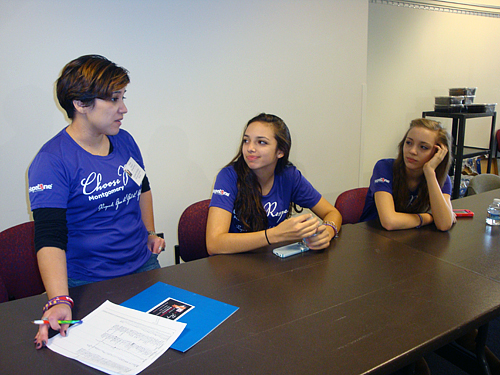
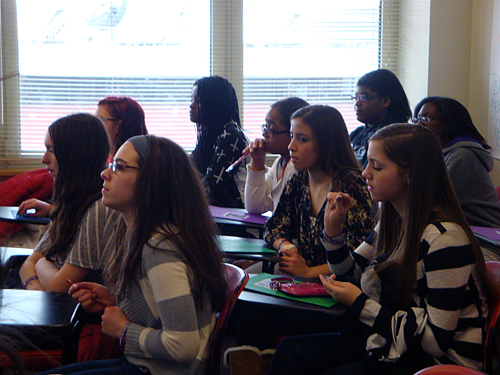
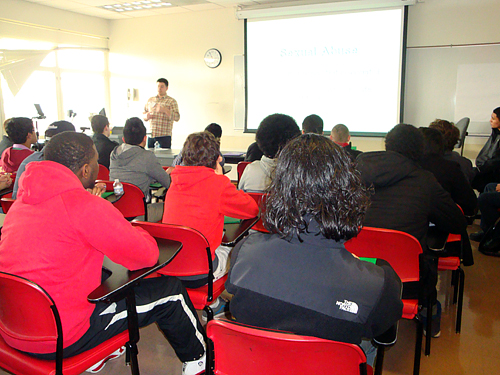
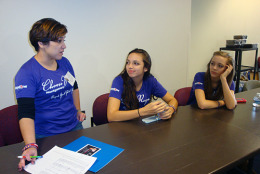
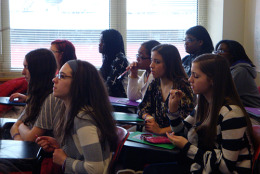
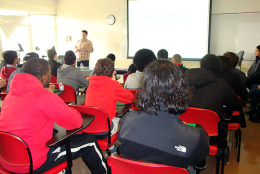
Paula Wolfson, wtop.com
GERMANTOWN, Md. – Too many American teenagers are victims of dating violence.
“One in three teenagers is in relationships that we call unhealthy,” says Hannah Sassoon with the Domestic Violence Coordinating Council of Montgomery County.
And this is largely hidden violence, says Sassoon. She says teens are in denial, and so are their parents.
Breaking the silence has become a crusade for the council, which has been urging county officials to pay more attention to the effects of dating abuse on these kids and their families.
As a result, Montgomery County has stepped up awareness efforts in public schools, starting in the sixth grade and continuing through grade 12.
It also sponsors a conference each year that brings together teens, parents and support groups for some straight talk about a big problem.
Lynn De Leon, a Damascus mother of four, attended this year’s conference, held Sunday at the Montgomery College Campus in Germantown.
She says the stories of abuse gave her goosebumps, adding that the mere prospect of discovering your child could be a victim of dating violence is “a nightmare for parents.”
De Leon says parents need to talk to their kids and keep the lines of communication open.
“It is critical,” she says, “for parents to be involved.”
Lisette Orellana of Gaithersburg agrees communication is key, but acknowledges it can be tough to start a dialogue. She fell into an abusive relationship when she was only 15. Now 26, she looks back and says she was too embarrassed to tell anyone, and no one guessed anything was wrong.
Hannah Sassoon says that response is all too common.
“About 80 percent of the parents don’t identify this as a problem, don’t talk to their kids about it, don’t know what is going on with their kids in that relationship,” Sassoon says.
The flip side, she says, are the children who often “do an exceptionally good job of hiding it.”
The many facets to teen dating abuse are part of the problem. Those facets can be physical, emotional or psychological. Those issues can sometimes confuse teens.
A good example is the girl whose boyfriend is constantly texting her.
“The young girls see this as flattery,rather than obsessive behavior, jealous behavior that could lead to problems down the road,” Sassoon says.
That is exactly what happened in Orellana’s case.
“It started out as emotional abuse. There was a lot of controlling. A lot of jealousy. There was a lot of emotional blackmailing. It later turned to physical abuse,” Orellana says.
Here are some helpful websites to get information on dating abuse or to seek help:
- Love is Respect: Teens can call, live chat or text with peer advocates
- Love is not Abuse
- Break the Cycle
- Futures Without Violence
Follow @WTOP on Twitter.







